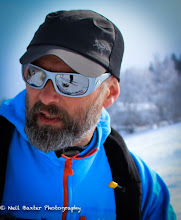I am in the extraordinary lucky position to be able to work with mountaineering and snow sports clothing companies giving feedback and performing PR duties. It give me the chances to use the best gear year round. Moreover it gives me the ability to be in a position of knowing what works on the mountain and what does not. You find out pretty quickly which sleeping bag is most suited to an Alpine environment or which hard shell holds up to the dampness of a Scottish winters day, which innovations are practical and real and which are quite frankly, nothing more than gimmicks. At this time of year when many people are about to spend their hard earned cash on a new ski outfit or some climbing kit, an ice axe or a snowboard just exactly how do you go about avoiding the dud?
There have been some absolutely stupid ideas in the last few years as many gadgets have been added to kit purely for manufacturers to shout about and not really to enhance functionality. One of the most laughable in recent years has been the use of mini magnets to replace zips or poppers on the pockets of ski and snowboard clothing. To add to the idiocy of this “improvement” was the inclusion of a compass sewn into the sleeve of the self same garment. Imagine telling the rescue team that your compass would not work because magnetic north was actually in your jacket and not in Canada.
Another classic is the idea of cloth or leather covered ski or snowboard helmets. Absolutely ideal of course for soaking wet snow days in Scotland when just the sheer fact of increasing elevation can turn the head sponge into a helmet sealed in ice. Why?
When money is tight it is always going to be a temptation to buy cheap kit and for the occasional spring sun soaked ski holiday quite frankly pretty much anything will do, cowboy hats and jeans included. It’s a good look if you live in Durango, but not if you live in Dundee. I am the co-owner of The La Source Chalet in the Alps and week after week I find myself lending out rucksacks, helmets, gloves and clothes, and if the clients are big enough and not squeamish, in some cases thermals. People are often suckered into buying fashion and not function. It’s not their fault rather more the result of poor advice given in the shop and a lack of real knowledge about mountain conditions.
The adage amongst mountaineers and serious hill people that cotton kills just doesn’t seem to get through. It kills because it soaks in sweat and does not transport it away from your body and then cools down faster than a streaker in a police van. It’s not just a matter of personal comfort or safety. If you are properly dressed and your idiot hill partner has a crotch lower than his knees, a huge t-shirt hanging over his arse, and a set of earphones the colour of a green beetle, leave him in the half pipe and don’t go hiking into the hills in search of a few clean turns. I say this because when he inevitably gets cold, it’s not just going to be your day that may be shortened, it also could be your life. This principle holds true for any winter sport. So how do you make the choice between a nice looking piece of equipment and something that actually works? Well, my basic advice is to use equipment that is made by mountaineering brands, and the plus is that nowadays it often looks pretty nice too. There is no doubt that some more mainstream snowboard and ski companies are getting there, but keep your eyes open. If it looks fussy, has pockets on the knees, and does not have sealing tape on the seams, just forget it. Function is now fashion, keep the cotton tee-shirt clean for the pub, go hug a merino sheep, leave the studs in the nightclubs, and go buy something that will work in Nepal or on Ben Nevis instead.


No comments:
Post a Comment